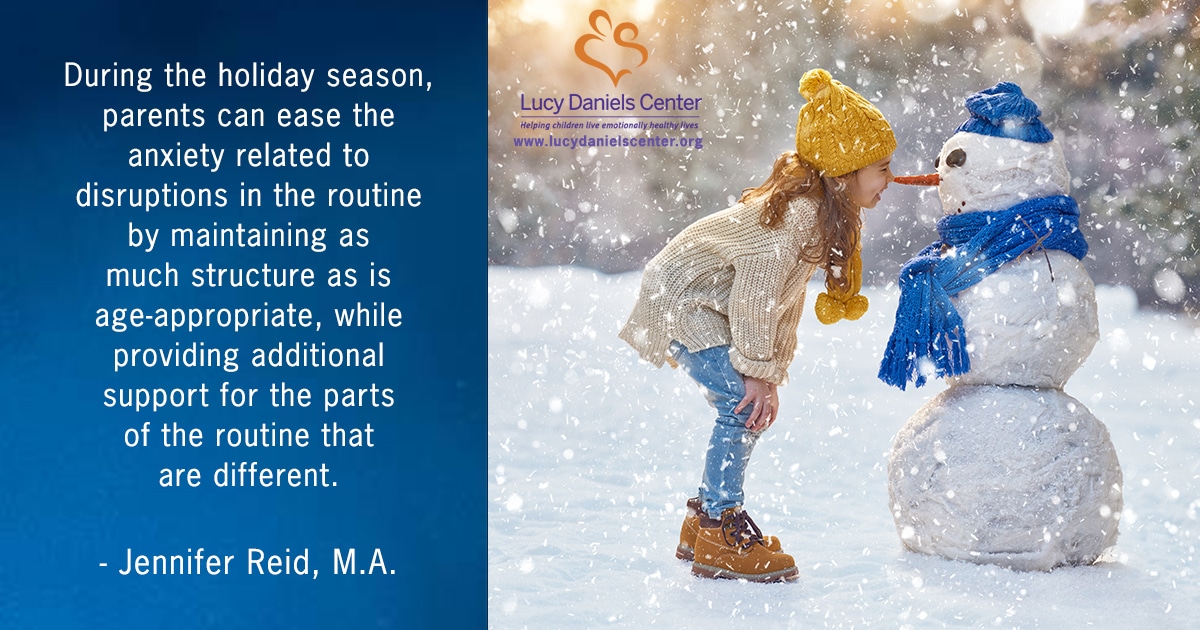Helping Children as the Winter Holidays Approach
Even if you are planning on staying home this winter season, the festivities leading up to the winter holidays can bring about many changes and disruptions to a family’s routine. Some children take these changes in stride, while others may need extra support to manage the excitement and anticipation of the season.
Children, especially under the age of six, depend a great deal on structure and routines. The familiarity of regular behavior patterns provides a sense of comfort and stability. Of course, sometimes routines change; sometimes the changes are planned and sometimes they are unexpected. Either way, learning to cope with changes as they come about is an important developmental achievement that emerges over time. Children can be helped with this developmental task when parents talk about the disruptions, including preparatory discussions when they are planned and reflective discussions when they are not.
During the holiday season, parents can ease the anxiety related to disruptions in the routine by maintaining as much structure as is age-appropriate, while providing additional support for the parts of the routine that are different.
One area where children may need additional support is in their attention and focus on their schoolwork. Some parents may be finding that it is becoming more difficult to motivate their children to participate in class or complete schoolwork, especially if they are signing on remotely. For many children, holiday decorations are up and the anticipation of Hanukkah and/or Christmas is building. This year, the signs of the approaching holidays are all around children while they are learning from home, which is probably making it a little harder to concentrate in school.
Some tips:
- Make a visual countdown of the number of days of school left before the break (paper chains work great for this!).
- Put words to the struggle: “I know it’s hard to concentrate on schoolwork when there’s so much else on your mind. Your teacher knows and understands that, too. Just (x number of) days left before you have a break from school. You can do this!” Use comments like this as conversation starters, but it’s also okay if you don’t get a response. Sometimes just acknowledging the range of feelings can help.
- If your child believes that behavior is tied to what they may or may not receive as gifts, consider letting them know that whoever the gift-giver is understands that no one has perfect behavior and that school struggles don’t count as “bad” behaviors. Sometimes the anxiety about “being good” actually causes more disruptive or undesirable behaviors and taking some of the pressure off can help.

